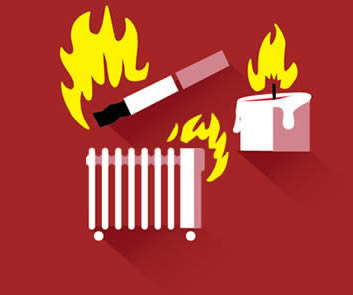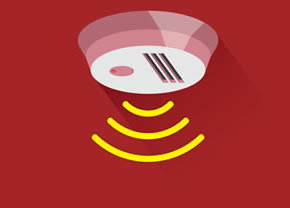Camping, caravans and boating fire safety
In the last five years, FRNSW has responded to 355 caravan and campervan fires, an average of more than one fire per week. Follow these simple safety tips to help stay safe while caravanning, camping or boating.
On this page
Camping checklist
Before you go:
- Pre-plan how you can call Triple Zero (000) for help if your camping area has limited mobile coverage.
- Pack a portable radio to stay updated regarding weather conditions and fire restrictions that may be in force.
- Download the EmergencyPlus app [external link]. The app uses your mobile GPS data so we can get to you quickly if help is needed.
- Upgrading your gear? Consider buying a flame retardant tent.
While away:
- Always fully extinguish campfires before going to bed.
- Never leave matches or lighters in reach of children.
- Ensure children are always kept at a safe distance from campfires and supervised by a responsible adult.
- Never make a campfire too close to your tent or caravan.
- Ensure you are aware of campground policies on lighting fires, use supplied fireplace where possible and never light a campfire when there is a total fire ban.
- Familiarise yourself with a campground’s emergency plan and the location of any firefighting equipment such as hose reels.
Caravans checklist
Before you hit the road:
- Make sure your caravan has a working smoke alarm as well as a fire extinguisher (dry chemical powder) and a fire blanket located near the exit.
- Have an escape plan in case of fire and make sure nothing blocks your escape route.
- Ensure LPG cylinders are secured correctly to the caravan and that all fittings and hose lines are in good working order.
- Ensure you turn off any pilot lights before towing or when the towing vehicle’s engine is running.
- Pre-plan how you can call Triple Zero (000) for help if you’re travelling to locations with limited mobile coverage.
- Pack a portable radio to keep updated regarding weather conditions and fire restrictions that may be in force.
- Download the EmergencyPlus app [external link]. The app uses your mobile GPS data so we can get to you quickly if help is needed.
While away:
- If a fire starts, get out, stay out and call Triple Zero (000).
- Avoid using candles or open flames inside a caravan.
- Don't smoke inside caravans.
- Test your smoke alarm weekly.
Smoke alarms
Caravans and campervans have limited escape options in the event of a fire. You have just a few seconds to get out of a burning caravan, as they are constructed of lightweight and and potentially highly combustible fittings. A working smoke alarm can mean the difference between life and death.
NSW legislation stipulates that you must have at least one working smoke alarm inside the van where the bed is, and one in the annex if people are sleeping there.
These smoke alarms must be fitted with a "hush" button, allowing the occupant to silence the alarm for 10 minutes.
Smoke alarms can be purchased at most major supermarkets and hardware stores across NSW.
Smoke alarms must meet Australian Standards 3786 (AS3786).
Boating fire safety
- Install a smoke alarm in your boat if used for sleeping or cooking.
- Avoid using any open flames or candles on your boat.
- Ensure any gas cooking devices are in proper working order including gas fittings and hose lines.
- Ensure gas cylinders and any fuel containers are secured safely.
- Do not smoke inside boat cabins.
- Have a fire extinguisher and fire blanket in an easily accessible location.



